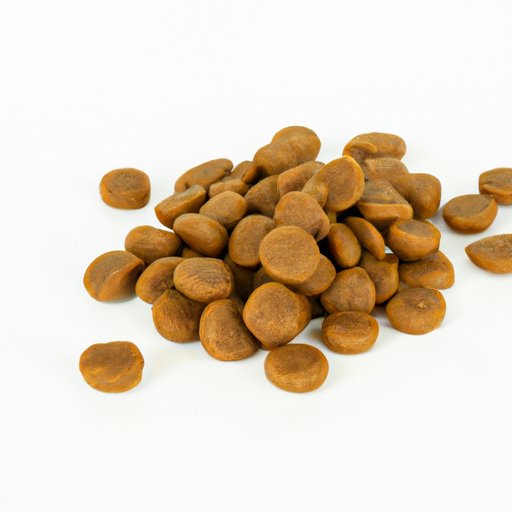
Should Dogs Eat Grain-Free?
Proper nutrition is essential for dogs to live healthy and happy lives. With an abundance of options available, many dog owners wonder if they should feed their pets a grain-free diet. Grain-free dog food has become increasingly popular in recent years, but the debate surrounding its benefits and drawbacks is ongoing.
Pros and Cons of Feeding Dogs Grain-Free Food
Grain-free diets have become a popular choice among dog owners due to their many potential benefits. Grain-free dog food can aid in weight loss, reduce allergies, and improve digestion. However, there are also some potential drawbacks to consider. Grain-free food can be more expensive, and there is a risk of nutrient deficiencies if the proper precautions are not taken.
The Science Behind Grain-Free Dog Food
The debate over grain-free dog food’s effectiveness is still ongoing. However, scientific research suggests that dogs on grain-free diets can have positive results. Studies indicate that dogs that consume grain-free dog food have healthier coats and better digestive health. Researchers believe that removing grains from a canine’s diet reduces inflammation and helps to stabilize blood sugar levels.
How to Choose the Best Grain-Free Dog Food
Choosing the right brand and flavor of grain-free dog food is essential for ensuring that your pet receives optimal nutrition. Before settling on a product, consider factors such as price, ingredients, and brand reputation. Look for high-quality, protein-rich ingredients like chicken, fish or beef, and avoid food that contains fillers such as corn and wheat. Additionally, monitor your dog’s reaction to the food, and always consult with your veterinarian before making any changes to their diet.
Success Stories of Dogs on Grain-Free Diets
Many dog owners swear by the positive impact grain-free diets have had on their pets. Dogs on grain-free diets have reportedly experienced fewer gastrointestinal issues, healthier skin, and coats, and improved behavior. Owners report that their pets appear not only healthier but also happier after switching to grain-free dog food. A well-balanced, grain-free diet can positively impact a dog’s well-being, helping them to lead healthier and more fulfilling lives.
Ethical and Environmental Concerns of Grain-Free Dog Food
Some grain-free diets source ingredients that raise ethical and environmental concerns. For example, some dog food manufacturers use exotic meats such as kangaroos and alligators in their products. Others may rely on imported exotic fish, which can harm ecosystems. It is vital to research the sources and origins of the ingredients used in grain-free dog food before making a purchase to avoid contributing to animal welfare issues and environmental damage.
Common Myths and Misconceptions About Grain-Free Dog Food
There are several common misconceptions surrounding grain-free dog food. One is the belief that grain-free diets are carb-free. In reality, grain-free dog food often contains alternative carb sources like potatoes, lentils, or even sweet potatoes. Additionally, some believe that dogs require a significant amount of carbohydrates in their diet. While carbohydrates can provide essential vitamins and minerals, dogs can get all their necessary nutrients from protein and fat.
Recipes and Meal Plans for Grain-Free Dog Food
Homemade dog food is an increasingly popular choice for pet owners that are passionate about optimizing their pet’s nutrition. Homemade grain-free dog food recipes tend to be relatively simple and cost-effective while delivering a well-rounded balance of protein, fat, and complex carbohydrates. Additionally, there are many ready-to-eat grain-free dog food diets available, such as those with raw food, freeze-dried, or dehydrated options.
Conclusion
Deciding whether a dog should eat grain-free food ultimately depends on individual dietary needs. However, research suggests that grain-free diets can offer many potential health benefits. While there are potential drawbacks, as long as dog owners take appropriate precautions and choose well-researched products, there’s no reason why dogs can’t enjoy the benefits of a grain-free diet.




